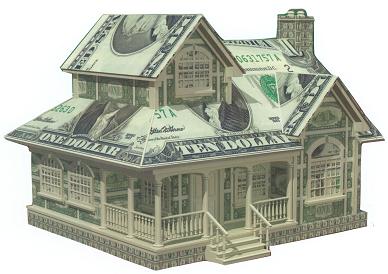
BLOG
Condominiums – Should You Consider Purchasing One
Condominiums tend fall into the love them or hate them position for buyers
Condominiums are all about communal living, which can be good or bad depending upon your personal views. This type of communal living doesn’t refer to the failed experiments of the sixties wherein hippies packed into a structure and shared everything. Instead, the modern condominium community is all about sharing common spaces as well as rules, rules and more rules.
Condominiums come in all shapes and forms. Condos can be found in a single high rise building in a downtown area or in an apartment complex type of layout in a planned community. The structure isn’t the determining point. Instead, the issue is how the properties are owned.
Unlike a stand alone home, the property lines on a condominium are the walls of the structure. Essentially, you own everything inside the condominium as your individual property. Everything outside the condominium is owned jointly with the people who own the other units. These areas are known as common areas and are subject to group rule.
Every condominium has a homeowners association in one form or another. The association has rules set out by the original developer regarding landscaping and so on. Members of the community are then elected to the board of the association, whereupon the immediately become a focal point of aggravation from individual owners and often wonder why they took the thankless job.
The problem with the association and condos in general is the issue of uniformity. If you desire to change the exterior of your condominium in some way, you must comply with the rules of the association. This means you cannot paint your property a different color, do landscaping and so on. For some people, this isn’t a problem, but others are frustrated they can’t express themselves.
When deciding whether a condominium is a good option for your next purchase, you need to carefully weigh the restrictions of a particular association. If you consider yourself an individual and want to show it, a condominium is probably a very poor choice for you.
Laura Key, BRE 01908085 310.866.8422 Laura.A.Key@gmail.com www.KeyCaliforniaHomes.com
Budget for Closing Costs – Home Inspection and Title Fees
Buying a home means you also have to budget for additional expenses! Make sure you put some money aside for the extras.
Purchasing a home is a euphoric event. Once escrow begins, the euphoria can change to frustration, particularly if you are not ready for the closing costs that quickly accumulate.
Closing costs simply refer to the fees associated with various things associated with the escrow process in a real estate transaction. In the excitement of having an offer accepted for your dream home, you can easily lose track of the fact you are going to need to have some serious cash on hand to pay them. Many people make the mistake of only assuming they need the down payment money, and have to rush around town trying to come up with money for the closing fees.
If you are buying a home, you need to get a professional home inspection. Doing so can reveal potential problems with the home that you wouldn’t otherwise notice. Problems can include things such as rot, termites, water leaks and a bevy of other issues. The time to do this is during escrow. Of course, that means you are also going to have to pay for the inspection. Depending on the size of the property, home inspections can run a few hundred dollars up to a few thousand. Make sure you have money set aside for the fees.
Title insurance is something you absolutely must purchase when you buy any real property, a home, building, land or whatever. Title insurance protects both you and your lender. Title insurance is just what it sounds like. A title company will research the title of the home and essentially guarantee that the title is good. This means the seller actually owns the title and has the right to sell it to you. The title company will also make sure there aren’t any liens on the homes or other things that will cause you problems. Depending on the price of the home, title insurance can run you a couple of hundred dollars or up into the thousands. Again, it is important to find out the cost and budget for it.
Title insurance and a home inspection are two things you should absolutely have when purchasing a home. Just make sure you budget for them.
Laura Key, BRE 01908085 310.866.8422 Laura.A.Key@gmail.com www.KeyCaliforniaHomes.comA Bit About Mold
There are a number of little things to look out for when purchasing a new home. Normally the things to consider includes such things as location, wiring, the condition of the house itself, and several other factors. One of these factors that the home buying public is becoming more concerned with is mold.
 There are a number of little things to look out for when purchasing a new home. Normally the things to consider includes such things as location, wiring, the condition of the house itself, and several other factors. One of these factors that the home buying public is becoming more concerned with is mold. There are many different types of mold that can occur in a home and lead not only to structural damage, but some health concerns as well. Mold is difficult to find in many homes as it grows exclusively in dark and moist areas that are usually hidden somewhere in the structural areas of the home such as attics and basements. By the time mold shows up in the actual living areas, chances are that it is all through the home.
There are a number of little things to look out for when purchasing a new home. Normally the things to consider includes such things as location, wiring, the condition of the house itself, and several other factors. One of these factors that the home buying public is becoming more concerned with is mold. There are many different types of mold that can occur in a home and lead not only to structural damage, but some health concerns as well. Mold is difficult to find in many homes as it grows exclusively in dark and moist areas that are usually hidden somewhere in the structural areas of the home such as attics and basements. By the time mold shows up in the actual living areas, chances are that it is all through the home.
One of the most likely places for mold to form is anywhere that moisture is improperly vented. Another area of concern is if a home has ever flooded and was not completely or properly cleaned and dried after. Leaky plumbing and basement crawlspaces are other likely candidates. Mold can be a difficult thing to completely get rid of as the only thing it needs to continue growth is an organic material such as wood, and moisture. Both of these items are usually abundant in any home. The most likely was that moisture finds its way into the home is through faulty or leaky roofs and foundations. Both of these areas should be checked over by an experienced mold inspector on a fairly regular basis if there is any worry of mold beginning to grow, or if these has been mold in the past. Mold can be an expensive problem to deal with so be pro-active about looking for it, it can save you money in the long run.
Search for Homes Free! Click below!
Where Asking Prices Are Rising the Most
California is rising fast, yet it's not at the highest it's ever been. Interested in buying or selling! Let me assist you in reaching your real estate goals! Laura Key 310.866.8422
Median list prices in May edged up 2.10 percent month-over-month, as housing inventories also were on the rise, creating a greater balance between supply and demand, according to realtor.com’s latest Real Estate Health Report.
The nationwide median list price was $199,000 for May, and up 4.79 percent year-over-year.
"We are seeing large regional markets across the country leading the way to national recovery. These regions are acting as a microcosm for what's slowly happening in the larger real estate market," says Steve Berkowitz, chief executive officer of Move. "Overall, we're seeing seller confidence beginning to respond to consumer demand. Nationally, there are more homes going on the market for a shorter amount of time. And this is happening in our hot markets on a much larger scale."
California housing markets are seeing some of the highest median price gains. The following 10 markets have seen the highest year-over-year list price gains:
1. Sacramento, Calif.: up 42.45%
- Median list price: $284,900
2. Oakland, Calif.: up 38.27%
- Median list price: $495,000
3. Detroit, Mich.: up 31.73%
- Median list price: $125,000
4. San Jose, Calif.: up 30.58%
- Median list price: $679,000
5. Los Angeles-Long Beach, Calif.: up 27.80%
- Median list price: $428,000
6. Fresno, Calif.: up 27.48%
- Median list price: $219,900
7. Phoenix-Mesa, Ariz.: up 27.03%
- Median list price: $235,000
8. Stockton-Lodi, Calif.: up 25.63%
- Median list price: $199,750
9. Reno, Nev.: up 24.23%
- Median list price: $235,900
10. Santa Barbara-Santa Maria-Lompoc, Calif.: up 24%
- Median list price: $775,000
Source: realtor.com®
Search for your next home for FREE! Click below!
Laura Key
Realty Goddess
Laura Key on CBS News
Make Your Pad Reflect You
Hey men should know how to trick out their pads just as much as women do! I have a high amount of male clients who purchase homes, and they don't need Martha Stewart to make it their own! Ready to have your OWN space men? Call me! Laura Key 310.866.8422
Whether you're a sports buff or the trendy guy in your posse, we've got ways to make your pad part of your image.
By Karin Eldor, Fashion Correspondent
Page 1: Bachelor pad furniture
If you are where you live, what does that say about the maintenance and effort you have to put into your home? Well, that all depends on what you want others to think about you. So if you're decked out in expensive threads, your effort won't mean much if your place is a disaster, or worse, not a reflection of you.
Whether you live in a small apartment, a 1,500-square-foot condo or a three-level house, the home you call your own is your representative. And when a fine lady comes over to pay you a visit, you want to make sure she's impressed by your space.
You don't need to be an interior designer or spend tons of cash to be proud of your pad. As long as you feel comfortable in it, you will hold your head up high... even while lounging in your favorite chair.
who are you?

Start by asking yourself the following questions, for a self-inventory checklist:
How would you describe yourself? (athletic; cultured; ambitious; stylish; indifferent; etc.)
What are your hobbies? (mountain climbing; traveling; scuba diving; world history; wine tasting; golf; playing music; screenwriting; etc.)
These might seem obvious to you, but remember; making your home a reflection of you is worthless without knowing what your image is -- or at least what you want it to be.
No passions or traits have to be exclusive; you are likely an amalgamation of characteristics and that can be reflected in your home.
get started

The following are different broad categories that can be used as templates for decorating your pad, to bring out the "you" you're going for (based on your profile). Remember; you can be a combination of each of these categories.
The Athletic DudeWhether you're usually glued to the TV watching the big game (and this can mean several simultaneous games) or love reciting sports scores with your buddies after scoring big in your own football game, sports are your thing. Show your appreciation by adorning your home with things like vintage sports jerseys and mementos. And of course, you can't forget a widescreen plasma TV (50 inches or more) -- made larger than life with surround sound -- so that you can watch the game in style while sitting in a super cool recliner.
The HipsterWhen it comes to style, you've got it in spades -- at least that's what your friends tell you. You're a leader who always knows the trends before they hit the streets and your posse relies on you to dictate the latest fashion. This character trait could get pricey when it comes to your home, which is why I recommend starting with a classic, neutral base for the expensive items (i.e. couch, dining table, etc.) and decking your pad out with ultra-hip accessories like cool lamps, trendy vases, a stylin' coffee table, and cutting-edge gadgets.
Whether you're cultured or ambitious, here are some ideas for your home...
Page 2: Home decor

The Cultured BlokeThe ladies are always impressed by your appreciation for the finer things in life, be it your knowledge of fine wine, your travels to Botswana and Brussels, or your penchant for investing in valuable art. Make your pad your canvas by covering the walls with your favorite paintings, and rather than a table from Pottery Barn or Ikea, search for an antique table last used by Louis IVX. Store your wine collection in a slick wine cabinet and display your African masks in the living room.
The GourmetThere's nothing wrong with knowing your way around the kitchen; after all, you've been known to woo women with your creations. Show your female guests that you can satisfy their hunger (and more) by investing in a luxurious kitchen. If you enjoy spending time experimenting with food, make yourself more comfortable by installing a kitchen island, and treat yourself to an industrial-style stainless steel oven range. Pimp up your kitchen with a slick fridge or exhaust hoods, a rack to hang copper pots and pans over your oven or island, or, for those on a tighter budget, accessorize with appliances like a sleek toaster, blender and coffee maker.

The Zen Master Show off your inner peace by placing fresh bamboo or stones in clear glass vases, or for a bigger investment, treat yourself to a Jacuzzi with jets in your favorite bathroom. Maintain a minimalist look with white walls and furniture, and an overall sleek decor.
The WorkaholicWhile this might not be a character trait you want to flaunt, you can spin your workaholic tendencies as "ambitious." Set up a home office with a flat-screen computer, a state-of-the-art desk chair, and a slick table with a lot of organizational features to make you look like a guy who's always in control.
maximize your space

You don't need to overhaul your home to give it that unique touch that's "you." If you've been living in your home for a while and are already settled in, sometimes a slight reorganization can do the trick, as can a paint job and some new accessories.
Source: www.AskMen.com
Do you work from home? Buy your next home with your office in mind!
If you work from home, and it is time to move to your next home, there are some factors you should consider carefully before making your decision.
The flexibility afforded by a “zero-commute” combined with the skyrocketing price of gasoline has strengthened the case for full time teleworking and telecommuting. According to an Environmental Protection Agency (2004) study:
“Americans spend an average of 46 hours per year stuck in traffic. Gridlock produces more than $63 billion in congestion costs per year”
The artist community has been well acquainted with the use of work/living spaces for years, but improvements in technology have made the benefits of teleworking and occasional telecommuting more attractive to general consumers. According to the key findings form the International Telework Association & Council (ITAC) Telework America (2000) study:
“Home-based teleworkers also have larger homes, on average, than non-teleworkers; the difference amounting to about 500 square feet. The most popular place for an office in these larger homes is a spare bedroom, with the living room a distant second. The primary home telework activity is computer work (55% of total activities), followed by telephoning, reading, and—averaging 7% of the time—face to face meetings.”
As you purchase your next home, there are certain factors to consider if you need to set up a new home office:
Make sure that your high-tech needs can be met. Have a qualified electrician inspect the wiring of the house to see if the system can handle the extra power load that your home office requires. Older homes may need significant upgrades to handle the extra power, while newer homes are built with more energy-efficient systems to handle the additional power along with heating/air conditioning requirements. If you use cable, DSL or satellite internet access, check with your local service provider to see if access is available in your new neighborhood. Shop around for your telephone provider—in some cases, business service bundles may be more cost effective than regular residential service.
Designate where your office space will be. Determine the amount of space you will need to accommodate your work style and space. In many cases a spare bedroom or living room space can be used, if a formal den option is not available. If your work requires heavy telephone usage or just heads-down concentration, you may want to consider utilizing a room with a door. Doors can be closed to reduce interruptions from other family and household noises.
Plan your office blueprint to include all required furniture, bookcases, computers, fax, and printers. Make sure to allow for filing and storage space for files and extra office supplies. Lighting is critical for computer or assembly work, so make sure to allow for direct sunlight along with any specific task lighting that may be necessary. Select flooring options that will allow you to work comfortably—you may wish to go with hardwood or laminate flooring to allow for your chair to move smoothly across the floor. Install enough phone lines to cover your home, business and fax machines needs.
Is the office easily accessible? If you will expect regular package deliveries, make sure that your designated office is easily accessible to the front door of the home. This is also necessary if you will need to meet clients or visitors in your office and would like to ensure a professional appearance for your business.
Find out about local business requirements. Some cities have zoning restrictions and guidelines for work/living spaces along with tax implications. Make sure to check with your local government to determine if special restrictions exist.
Are you ready to find a home that could allow you to work from home? Or...do you need more room in the current home you own? Give me a call - lets get you started!
Bankruptcy And Buying A House - Is It Smart To Buy A House After Bankruptcy?
Each year, millions of people file bankruptcy as a means of erasing their consumer debts. While this approach may relieve stress, a bankruptcy is damaging, and will hang over your head for the next ten years. Still, it is possible to overcome bankruptcy. The key is making smarter financial and credit decisions. With this said, some people choose to purchase a home after a bankruptcy. Here are a few pointers to consider when buying a home.
Each year, millions of people file bankruptcy as a means of erasing their consumer debts. While this approach may relieve stress, a bankruptcy is damaging, and will hang over your head for the next ten years. Still, it is possible to overcome bankruptcy. The key is making smarter financial and credit decisions. With this said, some people choose to purchase a home after a bankruptcy. Here are a few pointers to consider when buying a home.
Reasons to Delay the Buying Process after Bankruptcy
If you consult with mortgage or financial experts, they will likely discourage you from buying a home following a bankruptcy. After your bankruptcy is discharged, there is a black cloud that looms over your credit report.
When any prospective lender reviews your report, they will be notified of your recent or past bankruptcy. In some instances, this justifies an immediate denial. On the other hand, there are lenders eager to help you establish or rebuild your credit. Thus, they will approve a loan request. Nonetheless, the penalties are steep.
Higher mortgage rates can be anticipated when purchasing a home after bankruptcy, especially if you have not established other credit accounts. Mortgage lenders consider two factors: credit scores and credit reports.
Although a bankruptcy appears on your credit report, having a high credit score will increase your odds of getting a comparable rate. Unfortunately, if you buy immediately following a bankruptcy, you will not have the opportunity to boost your score.
Reasons to Buy a Home after Bankruptcy
Lenders will approve mortgage loan applications one day following a discharge. Therefore, it is possible to get a home after a bankruptcy. Buying a home is perfect for rebuilding credit. Moreover, it is the quickest way to increase your credit score.
After a bankruptcy, the average person has a credit score below 600. Good credit consist of credit scores 650 and above. Maintaining current mortgage payments will gradually increase your score. After two years of regular payments, you will have established a good payment history. Hence, you may qualify for a low rate refinancing, which may lower your mortgage payments.
Ready to search for your new home? Start here!
Rare Opportunity to Buy by the Beach!
What a wonderful opportunity to live your dream of living by the beach! Redondo Beach to be exact! Call me for a scheduled showing! Laura Key 310.866.8422
630 The Village Unit 110 Redondo Beach, CA
$385,000
1 Bed 1 Bath 621 SqFt - HUD
Click Photo for Virtual Tour!!!
Call me today! Laura Key 310.866.8422!
Experienced HUD Selling Agent!
Laura Key on CBS News
Appraised Value: The Ups & Downs Of How Much A House Is Worth
How is the fair market value of a real estate property actually determined?
Determining Fair Market Value is an eternal struggle and major balancing act. That’s because buyers want a house to appraise on the low side—to keep the purchase price down. While sellers want the same house to appraise on the high side—to make the sale price higher. And then you’ve got the owners of the house—who also want the appraisal to be on the low side, in order to keep the property taxes down.
So with all these different agendas and points of view, how is the fair market value of a real estate property actually determined?
Once a year, your county sends all area homeowners official notices that put a dollar value on their property. And property taxes are based on those dollar values. But before those notices get sent out, a long, detailed process usually takes place. First, the land is valued as if it’s vacant—an empty lot, in other words. Then any improvements are described and measured. Improvements consist of the house and any other structures, pools, sheds, garages, and so forth. Next, most counties check the Marshall Valuation Service Cost Guide. It’s a standardized nationwide guide for determining the value of the cost per square foot to build a building that fits the description of the improved property. Next, if the house isn’t brand new, the replacement cost is considered, as well as depreciation; the year the house was constructed and the condition of the property are factors here. Appraisers then must take the critical step of comparing the value of the house with recent selling prices of similar homes in the neighborhood. At this point, the appraisal might stand “as is”—or it might be adjusted upward or downward.
Market Value is a theory, in other words—not an unchanging fact.
In a perfect world, you have to have willing buyer and a willing seller. Neither is under duress. Both are in a position to maximize gain and are trying to do this. But in the real world, things are rarely that simple and equally balanced. Which is why people feel differently about the appraisal value of a house. It really depends how strong their position is as a buyer or seller.
Does the local economy come into it at all? You bet it does.
Ask a successful Realtor about that! He or she will tell you they’ve noticed that the Rio Grande Valley’s fast-growing economy is attracting people from other areas who consider real estate here a bargain. That helps fuel increases in property values.
So—now you know where that Grand Total comes from.
You’re armed with the information you need to make a better house-buying decision. For instance, you can understand how two virtually identical houses that are in two different neighborhoods could be very far apart in price and appraised value. And why your choice of the right house in the right neighborhood could be worth a not-so-small fortune to you right now—and years down the road.
Sellers! You can get a great idea of how much your home is worth! Call me for a FREE Comparative Market Analysis (CMA) Laura Key 310.866.8422
Great Burbank HUD Home! 2 Bed 2 Bath
HUD Homes are a wonderful way to purchase your first home! Most are FHA approved and don't need much work at all. Make sure you use a HUD experienced agent as myself! I have helped many families obtain their Home Dreams with HUD! Call me today for more info! Laura Key 310.866.8422
2359 N. Reese Place
Burbank CA 91504
DIY Bucket List
This is a wonderful story about making their house a home! With so many options out there today it's hard to choose what you want in your own home.
Do Pets Make A Home Complete?
Some say a house is not a complete home without a pet? What are your thoughts? Meet Chewbacca and Fizgig, my furry babies!
 I grew up in the country in a little country town in Kentucky. When I was coming up we only had outdoor pets. So naturally 11 years ago when my husband and I purchased our first home I started to get the gentle heartstring plugs of wanting a dog. After much discussion and concern due to allergies, we proceeded to head out and get Chewbacca who is a full blood Shih Tzu. Chewbacca is gentle, warm, kind loving, and just a special being and I enjoy having him around. Well, after two years we thought maybe Chewbacca needed a companion. So off we went and ended up with Fizgig who is also from the same parents of Chewbacca but has a totally different view on life. He's stubborn, he barks, he is a little Tasmanian devil. But he is still my furry baby and both of my pets do something every single day that warms my heart and lets me know they love me as much as I love them. It's nothing like coming home to two little warm fuzzy faces who are happy to see you. Chewbacca and Fizgig bring both my husband and I untold joy!
I grew up in the country in a little country town in Kentucky. When I was coming up we only had outdoor pets. So naturally 11 years ago when my husband and I purchased our first home I started to get the gentle heartstring plugs of wanting a dog. After much discussion and concern due to allergies, we proceeded to head out and get Chewbacca who is a full blood Shih Tzu. Chewbacca is gentle, warm, kind loving, and just a special being and I enjoy having him around. Well, after two years we thought maybe Chewbacca needed a companion. So off we went and ended up with Fizgig who is also from the same parents of Chewbacca but has a totally different view on life. He's stubborn, he barks, he is a little Tasmanian devil. But he is still my furry baby and both of my pets do something every single day that warms my heart and lets me know they love me as much as I love them. It's nothing like coming home to two little warm fuzzy faces who are happy to see you. Chewbacca and Fizgig bring both my husband and I untold joy!
In case you are wondering where the names came from, my husband is a movie buff. Of course most know Chewbaccca is from Star Wars but most do not know where the name Fizgig came from. Fizgig has his name from the little dog like creature in "The Dark Crystal" and if you know that movie, then you know exactly how my little monkey acts!
So what are you thoughts? Is a house not a complete home without a pet?
Ready to create memories in your own home? Start your journey by attending a FREE homebuyers workshop. You will find info from credible lender's, the homebuying process taught by me, and lots more such as...what is escrow...Do I have to have an inspection? Contact me today for a class schedule!
Home is Where the Heart Is? Are You Ready?
Home is where you create wonderful memories! One of my favorite things is when my family comes for the holidays and we all gather in the kitchen and work on dinner. We have so much fun laughing and preparing dishes that have been handed down through the generations. Then after dinner we gather around piano and sing, sing, sing! Home.....are you ready?
Find your home now for free! Click below!
Return to 'Buyer's Market' Still Years Away
Even though it's tough for buyers right now, I never say it's IMPOSSIBLE! Buyer who are patient and stay the course can find a home! Call me today! Free Homebuyers classes coming soon! Register Now! Laura Key 310.866.8422
It may be two to three more years before prospective home buyers get a break from escalating property prices and tight supply, according to experts speaking at a National Association of Real Estate Editors conference Wednesday.
That is the time frame for institutional speculators, who currently are dominating the market, to pull out of their investments and still make a profit, explained Bill Rayburn of the mortgage technology firm FNC. The market also will need to see the return of individual home buyers in order to normalize, he said, which will be propelled by employment gains.
Source: "Better Times for Home-Buyers Will Take a Few Years, Experts Say," Los Angeles Times (June 5, 2013)
Search for homes now...It's FREE!
California Homebuyers Need Homes!
If you can't see the video from the photo please click here: http://www.cbsnews.com/8301-18563_162-57587256/home-flipping-trend-returns-threatening-higher-prices/
Are you thinking of selling? I have buyers! Call me and let's reach your Real Estate Goal! Laura Key 310.866.8422
4 Big Drivers of the Housing Market Recovery
There seems to be a light at the end of the tunnel and it's getting brighter each day! Let's Get YOU a home! Laura Key 310.866.8422
The Wall Street Journal highlighted four primary reasons why the housing market recovery is strong. They are:
- Sales have made big leaps from year-over-year levels. Existing-home sales are up 9.7 percent compared to one year ago. Sales are at an annual rate of 4.97 million, which is the highest level since November 2009, according to NAR. Despite constrained inventories and recent price gains, home sales continue to post increases.
- Non-distressed home sales are increasing. Home buyers are showing high demand for non-distressed homes. In April, about 18 percent of sales were in foreclosure or a short sale — down from 28 percent year-over-year.
- Inventories have increased. In April, the number of homes for sale rose 11.9 percent from March. The limited supply — mixed with rising buyer demand — has helped home prices to rise around 10 percent year-over-year. “Rising inventory should ultimately slow some of the price rally while boosting sales volumes, helping to restore equilibrium in the housing market,” The Wall Street Journal reports.
- Homes are selling a lot quicker. About half of all homes that were sold in April were on the market for 46 days, down from 83 days one year earlier, according to NAR data.
Search for your next home FREE! Visit me on Facebook and search NOW!
Source: “Four Reasons Why Home Sales Are Looking Healthy,” The Wall Street Journal (May 22, 2013)
What To Ask When Looking At Potential Homes
Buying a house can be an intimidating and overwhelming experience. Here are some key questions to ask yourself and sellers before plopping down a down payment. Let me help you with my FREE homebuyer's class! Call me today! Laura Key 310.866.8422
Buying a house can be an intimidating and overwhelming experience. Here are some key questions to ask yourself and sellers before plopping down a down payment.
What To Ask When Looking At Potential Homes
Following is a list of general questions you should always ask when considering making a real estate purchase. Keep in mind, however, you are unique.
You have particular dislikes and likes as well as factors in your life that are different than other people. The point I am trying to make is that you shouldn’t stick to just these questions. You are making an important choice, so give some thought to your situation.
1. Don’t rush into things. The first question to ask should be directed at yourself. What type of home do you want? How big should it be? What amenities do you want? Are you planning for a family in the next three to five years and will the home be able to accommodate a new bundle of joy? Make a definitive list and stick to it. If you stray from it, you could end up with a house that doesn’t really fit you and suffer buyer’s remorse.
2. The next question is what area do you want to live in? Pick a few. You may find the prices to be excessive or the selection not so hot, but make sure you exhaust those areas before moving on. Again, you want to avoid buyer’s remorse.
3. Once you start looking at homes, a key question to ask is how long the house has been on the market. The amount of time will give you an idea of how flexible the owner is on price. If the house has been on the market for a month, the owner isn’t going to be very flexible. If it has been on the market for six months, flexibility will definitely exist.
4. Has the house previously been in escrow, but fell out? If so, find out why? Was it a problem with the buyer getting financing or did the buyer find out there was something wrong with the home?
5. What kind of condition is the house in and how old is it? Remember that a seller has typically done everything reasonably possible to spruce up the home. If you can see wear and tear on the house, it may be a red flag. In such a situation, you need to get a home inspection to make sure there aren’t problems in areas you can’t see such as mold, rust and water leaks.
6. If you have children or are planning on it, you must investigate the school district. Are the schools good? Are there gangs or crime in the area?
7. In addition to the home price, you should ask whether there are any additional fees such association fees.
8. What are the property taxes and what will they be when you buy? Many people are shocked to find out how much they have to kick out in property taxes. Don’t get surprised.
9. Zoning and easement issues are often overlooked when buying a home. If you are buying in a neighborhood with many homes, zoning is undoubtedly going to be for residential living. Easements, however, can be nasty surprises. Find out if there are any easements on the property. An easement gives a third party the right to use of part of the property. This can include giving the neighbor the right to do something or a utility company to place structures on your prospective property.
10. Noise is another big issue to consider. If you are serious about the property, make sure to drive buy on weekdays and weekends. If the property shares a wall with another residence, such as a duplex or condo, make sure you view it while the neighbors are home to get an idea of how loud it is.
11. In the euphoria of buying a property, practical issues can be missed. A big one is traffic. Specifically, what is the commute like between the house and your place of work? You don’t want to buy the house only to find out it takes three hours to get to and from work each day.
Obviously, you should be asking many additional questions before making a purchase. These 11 questions, however, will help you get started. Call me to schedule a time to discuss the homebuying process in more detail. Don’t forget to look into fun things to do in the area to make sure it’s where you want to live!I care about my clients and educating them is a priority! Laura Key 310.866.8422 or email me at Laura.A.Key@gmail.com
3 Ways Renters Lose Money
Are you still renting a home or apartment for yourself or your family? If so, you're losing money. Besides losing out on making money with real estate, renters don't get the same satisfaction of home enjoyment that benefits home buyers. If you're renting, call me today to find out how to to buy your own home. Call me today! Laura Key 310.866.8422
Are you still renting a home or apartment for yourself or your family?
If so, you're losing money. Think about these three ways you lose money by renting:
1. You're paying for someone else's mortgage payment. You're missing out on the appreciation that the property gives to the landlord. Appreciation is a term used in accounting relating to the increase in value of an asset, which means in real estate terms, added value to the property. Over the past five years, houses appreciated significantly, making many new real estate investor multimillionaires.
2. Renters don't get to freeze their monthly housing expenses like home buyers can. Of course, many home buyers get mortgage payments with adjustable interest rates and their payments go up over time. However, these payments will not go up over the long term like rising rents. Just think about how much an apartment costs today compared to ten years ago. A two bedroom apartment in Lake Elsinore, California leases for $1,000 today. The exact same apartment rented for $325 in 1996, when it was brand new. Home buyers who had low monthly payments in 1996, who did not refinance their mortgage, enjoy low payments and don't have to worry about rising rents.
3. Renters don't benefit from tax advantages. Home owners get income tax deductions. Tax deductions for interest costs, for instance, save tax payers thousands of dollars.
Emotional Satisfaction of Home Ownership
Besides losing out on making money with real estate, renters don't get the same satisfaction of home enjoyment that benefits home buyers. Many landlords won't allow you to paint your walls in colors that you desire. Also, you won't feel like fixing up the property with custom window coverings and you get little say in flooring materials. Because you can't make your personal statement, you won't feel like you're HOME as much as home owners who feel emotionally connected to their property.
How to Buy Your First Home
The biggest barrier to home ownership is often accumulating funds for a down payment. People think they have to have thousands of dollars for a down payment. However, if you have good credit and a decent job, you can get a mortgage for a home with zero down. And you can finance some of your closing costs as well as ask the seller to help you pay a good portion of your purchase costs. With today's mortgage finance plans, you may be surprised to find out how much of a home you can afford with payments similar to what you currently pay in rent.
You may have to go out of the major metropolitan areas to buy a home. That's why so many people commute in Southern California. Affordable housing costs much less in outlying areas. But so do the rents. If you're renting an apartment for $2,300 in Los Angeles, you could buy a $500,000 home in Wildomar. Our daughter just purchased a home in December 2005 and her mortgage payment, for a 3,000 square foot new home, costs less than $2,300. With her tax savings, she will pay even less than renting a small apartment closer to downtown L A.
If these amounts sound high to you, check your local area. Perhaps your monthly rent is only $1,000 and houses cost less than $200,000. Talk to a mortgage loan officer and see how much of a home you can afford.
If you're renting, make one of your priorities to buy your own home.
Copyright © 2006 Jeanette J. Fisher
What is the Difference Between the Note and Deed of Trust
It's important to know the basics of real estate if you are going to own a home! Call me to register for a FREE Homebuyers Course! Laura Key 310.866.8422
A note, usually known as a promissory note, which is a written promise to repay a loan. Whereas, a trust deed is a document used to protect paying back of a loan that is being documented as a lien counter to the borrower's real estate. It is necessary to use a promissory note in order to avoid any breach in future. The various important terms of the loan should be specified in a promissory note including the loan amount, rate of interest (if any), and terms and conditions of repayment. It must be signed by the borrower with date in order to make it a valid document.
A deed of trust is a document that involves three parties generally known as the borrower, lender and a trustee. This document includes all the basic terms of the loan and should be signed by the borrower. It is documented as a lien contrary to the borrower's real estate. It is generally taken as a collateral document that works consecutively with the promissory note. In this document, the real property of the borrower is guaranteed as a lien to the lender. In case, the borrower is not able to pay back the loan amount, the lender may take the borrower's real property by way of the system of foreclosure.
A promissory note is a legal document that laid out all the essential things like how and when the borrower will pay back the money to a lender, the interest rate and the schedule of payment. It contains the undertaking of the borrower to repay the borrowed money within the specified time period. It is the personal obligation of the borrower to repay the money and has no relationship with an y real estate or other property.
Therefore, it can be understood that although, both the Note and Deed of Trust are an agreement for repayment of a loan, the tow are independent elements of a common mortgage loan. A deed offers the lien on the property in order to secure repayment of the loan. And, the note is completely a commitment between the borrower and the lender. The terms of this agreement can be modified at any period of time with the consent of both the parties. The deed of trust appears in the public property records, whereas, the note is completely a private document that never appears in the public records and therefore it is administratively very easy to make any modifications in the note.
*Please note that the information contained herein is for general informational purposes only. If you are currently involved in a real estate transaction, please direct your questions to your real estate professional, title officer or closing officer.
















